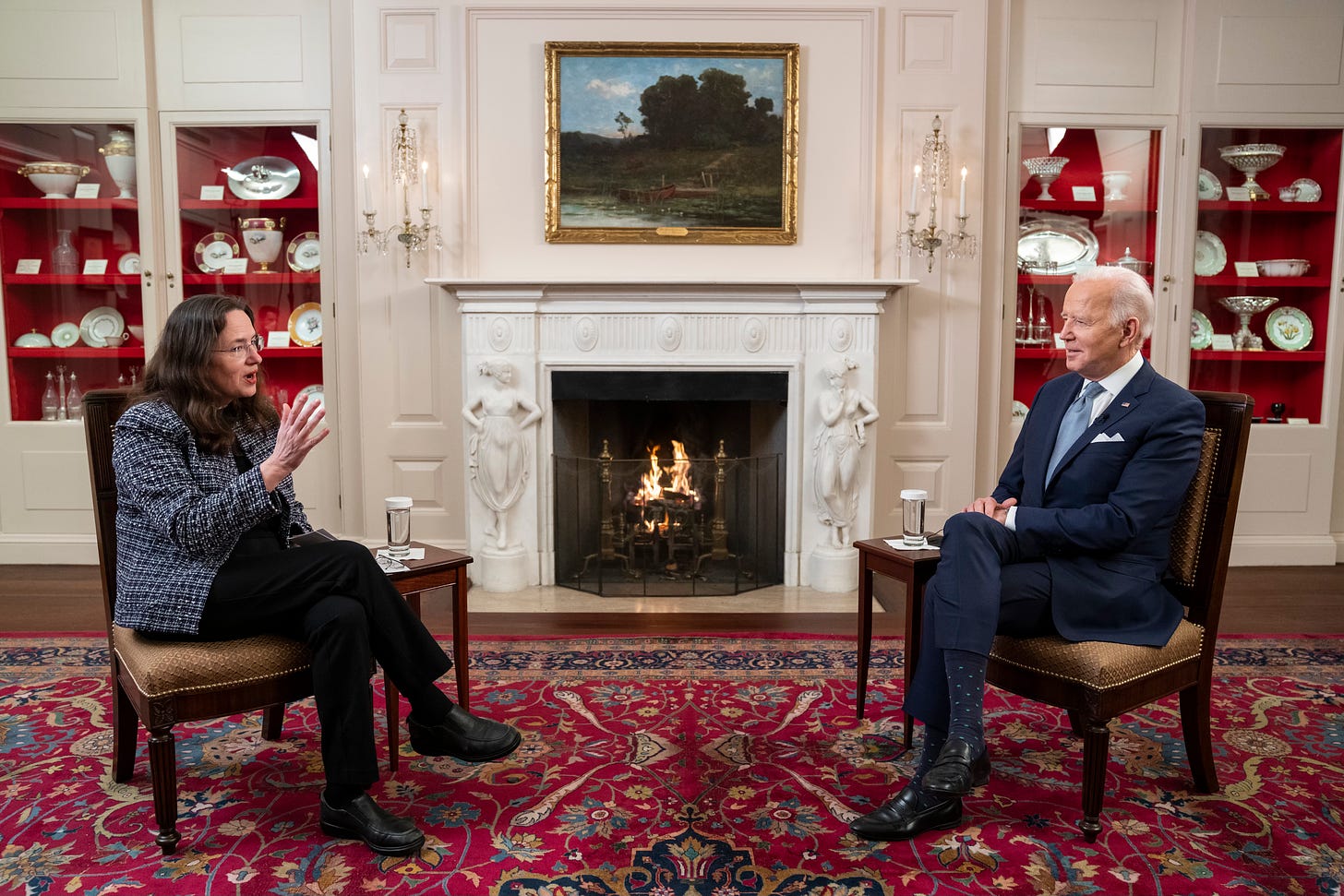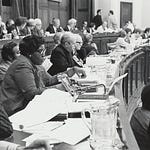
You remember that morning. It was November 9, 2016, and defeated presidential candidate Hillary Clinton had gotten even less sleep the night before than the rest of us. In fact, things had started falling apart early on election night. Confirmed political junkies like me saw the look on James Carville’s face in the hour after the polls closed in Florida, listened to his uncharacteristically clipped, subdued tone, and knew he wasn’t seeing the early numbers for Clinton that he wanted in that state—or anywhere else.
Clinton would not learn definitively that she had lost the election for another nine hours. But the mood in places like my neighborhood in New York City grew increasing gloomy throughout the evening. We watched, stunned, as Clinton lost states to Donald Trump she should have won, and was deadlocked or behind in key midwestern states that the Democrats had held in national elections for generations. By 2:00 a.m., critical bricks in that so-called “Blue Wall”—Wisconsin, Michigan, Ohio, and Pennsylvania—had either fallen, or were falling, to Trump.
I went to bed uncertain what America I would wake up to. Hillary may have gone to bed—but if she did, as I said—I don’t think she slept much.
The next day, Clinton gave what was by any measure an outstanding concession speech, wearing a black suit with purple satin lapels that was supposed to summon the history of women’s suffrage to the victory platform. Now her outfit seemed downright funereal. And compared to what has happened since, Clinton’s words sound like they came from another century, not seven years ago.
“Last night I congratulated Donald Trump and offered to work with him on behalf of our country. I hope he will be a successful president for all Americans,” she said, recounting the early morning concession call. This was a particularly gracious offer, considering that Trump had encouraged his partisans to chant “Lock her up,” invited women who had accused her husband of sexual assault to one of the debates, and spread false rumors that Clinton herself was chronically, perhaps fatally, ill.
I won’t go on. Unless you are younger than ten, you probably remember it yourself. And you remember what came after: a unilateral ban on travelers from Muslim-majority countries entering the United States. The brief elevation of a conspiracy theorist to the position of National Security advisor. An attempt to blackmail Ukrainian President Volodymyr Zelenskyy into smearing Joe Biden with a fake corruption scandal. Impeachment Number One. An attempt to overthrow a legally constituted United States election. Impeachment Number Two!
By the time Joe Biden was inaugurated in January 2021, we knew that Trumpism was an assault on our democratic system the likes of which we had not seen since the Civil War.
Somewhere in there, Heather Cox Richardson, a professor of history at Boston College, started writing long Facebook posts about the state of our nation. Richardson is no stranger to creating history for a general audience. She has written seven books, and nearly all of them could be a holiday gift for your relative who is passionate about intelligent, well-written political history. She has done three podcasts, most recently Now and Then, co-hosted with Yale historian Joanne Freeman.
But those Facebook posts began to gather a mass audience, and in 2019, Richardson launched a Substack, Letters From an American, to help what was now a substantial readership make sense of the first Trump impeachment. Once the impeachment was over, she plucked a news item from the day’s political events to delve into or told a story from our nation’s history that illuminated the present.
Four years later, Richardson is still at it. Every morning, there is a newsletter waiting for subscribers that number in the hundreds of thousands (actually, at last count it was 1.2 million.) Letters From An American is the top politics newsletter on Substack, beating out The Bulwark, Glenn Greenwald, and Matt Taibbi—among others. It’s so popular, that in 2022, she was invited to interview President Joe Biden one-on-one at the White House.
Now, just in time for the 2024 election season to go into high gear, Heather has a new book out to help us think about how we got here, Democracy Awakening: Notes On the State of America (Penguin/Random House, 2023.) It documents the history of reaction in the United States, and the countervailing progressive forces that have pushed us towards equality and justice.
As importantly, it is written to give us hope. Like our forebears, Americans can fight for the nonpartisan ideals on which this country was founded. We can fight for the rule of law. We can fight for the Constitution—the real one, not the one Steve Bannon made up in the basement of his D.C. townhouse. And like Americans before us, we can wage that struggle in our communities, in alliances that bring those who care about democracy together, and at the ballot box.
Show notes:
Heather talks about the efforts of American businessmen to put a stop to Franklin Delano Roosevelt’s New Deal. If you want to dig into this a little more, try Kim Phillips-Fein’s Invisible Hands: The Making of the Conservative Movement from the New Deal to Reagan (W. W. Norton & Company, 2009.)
The 1937 “Conservative Manifesto” that Heather mentions was also known as “An Address to the People of the United States;” it was written by North Carolina Senator Josiah Bailey, a conservative Democrat. You can read more about this founding document of modern conservatism here.
Claire brings up the original America First movement, which emerges in the late 1930s in opposition to the possibility that the United States will enter the war in Europe against Nazi Germany. To learn more about how dangerous this cabal of politicians and businessmen was, listeners may wish to try Rachel Maddow’s podcast Ultra, which dropped in June, 2023.
Heather notes that she chose the name of her Substack as a gesture to J. Hector St. John de Crèvecoeur’s Letters from an American Farmer (1782.) You can read the 1904 edition here, courtesy of the Library of Congress. The Substack makes a second gesture to English journalist Alistair Cook’s Letter from America, 1946-2004 (Knopf, 2004.)
Heather talks about how she learned to write for a popular audience, and mentions her book Wounded Knee: Party Politics and the Road to an American Massacre (Basic Books, 2010) as a turning point.
Claire makes a connection between the Black civil rights movement in the United States and expanding the franchise to include all young adults between the ages of 18 and 21. She talked about this with historian Jennifer Frost in an earlier episode, Old Enough To Fight, Old Enough To Vote.
Claire and Heather talk about the importance of moderation on social media, and Claire asserts that it is a very high-stress job. Listeners who are interested in pursuing this may wish to read Sarah T. Roberts, Behind the Screen: Content Moderation in the Shadows of Social Media (Yale University Press, 2021.)
You can download this podcast here or subscribe for free on Apple iTunes, Spotify, Google Podcasts, or Soundcloud. And if you liked this episode, please join us at Political Junkie!
If you enjoyed this episode, why not try:
Episode 37, Black Resistance, Black Joy: A conversation with political theorist Christopher Paul Harris about his new book, "To Build a Black Future: The Radical Politics of Joy, Pain, and Care."
Episode 34, We Demand Equality--NOW! A conversation with historian Katherine Turk about her new book, "The Women of NOW: How Feminists Built an Organization That Transformed America."
Episode 24, Against Government: A conversation with political scientists Amy Fried and Douglas Harris about their book, "At War with Government: How Conservatives Weaponized Distrust from Goldwater to Trump."
And here’s a bonus: through December 26, all annual subscriptions—for yourself or gifted to others—include a free copy of my book about political media, Political Junkies: From Talk Radio to Twitter, How Alternative Media Hooked Us on Politics and Broke Our Democracy (Basic Books, 2020.)













Share this post